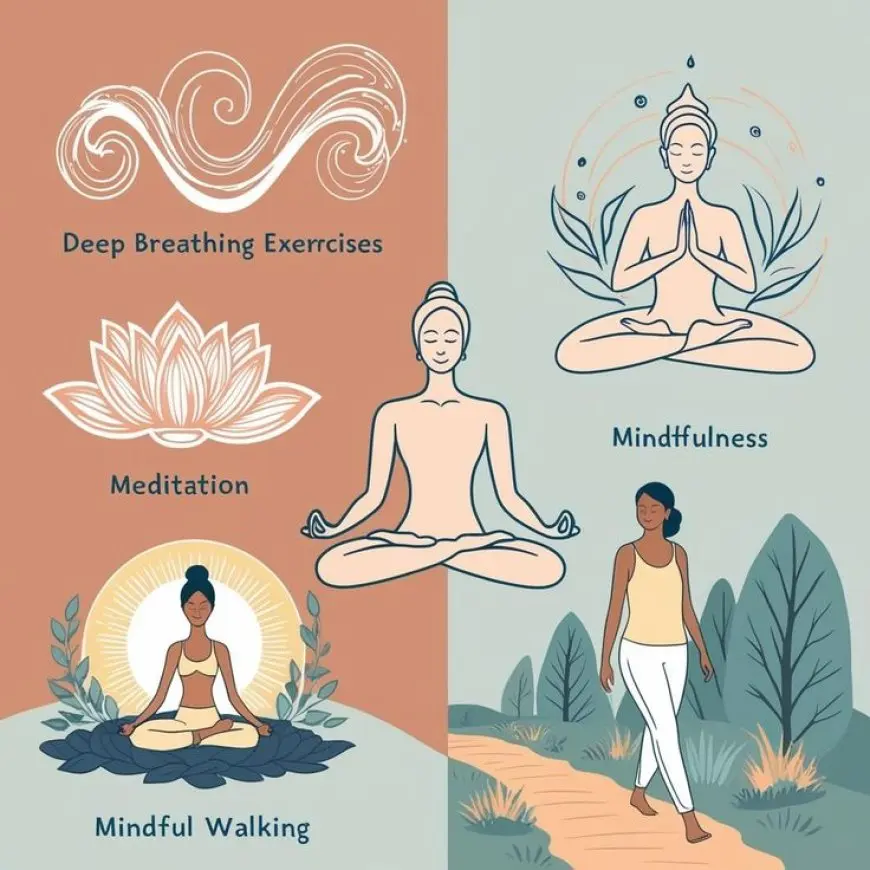Mindfulness Practices to Reduce Stress
Mindfulness Practices to Reduce Stress

In today’s fast-paced world, stress has become a common part of life. Practicing mindfulness is a proven way to calm your mind, reduce anxiety, and bring a sense of balance to your day. By cultivating awareness and staying present, you can effectively manage stress and improve your overall well-being. Here are some mindfulness practices that can help:
Focus on your breath. One of the simplest mindfulness techniques is to pay attention to your breathing. Find a quiet space, close your eyes, and take slow, deep breaths. Feel the air enter your nose, fill your lungs, and leave your body. This practice anchors you to the present moment and can quickly reduce stress.
Engage in body scans. A body scan involves focusing on different parts of your body, starting from your toes and moving upward. Notice any sensations, tension, or areas of relaxation. This practice helps you become more aware of how stress manifests physically and encourages relaxation.
Practice mindful eating. Instead of rushing through meals, take time to savor every bite. Notice the texture, taste, and aroma of your food. Eating mindfully not only enhances your relationship with food but also slows you down and shifts your focus away from stressors.
Spend time in nature. Being outdoors and observing your surroundings mindfully can be incredibly grounding. Pay attention to the rustling leaves, the sound of birds, or the feeling of the breeze on your skin. Nature has a natural calming effect and enhances mindfulness.
Try guided meditation. If you’re new to mindfulness, guided meditations can be a great starting point. These sessions, available through apps or online, walk you through relaxation techniques and help you stay focused on the present.
Incorporate mindfulness into daily activities. You don’t need to set aside extra time to practice mindfulness. Whether you’re washing dishes, folding laundry, or walking, focus entirely on the activity at hand. Notice the sensations, movements, and details of what you’re doing.
Practice gratitude. At the end of each day, reflect on three things you’re grateful for. This simple exercise shifts your focus from stress to positive aspects of your life, helping you cultivate a more balanced perspective.
Use affirmations. Positive affirmations are short, empowering statements that you can repeat to yourself. For example, “I am calm and in control” or “I can handle today’s challenges.” These help redirect your thoughts away from negativity.
Listen mindfully. When interacting with others, give your full attention to what they’re saying. Avoid interrupting or planning your response while they’re speaking. This not only improves relationships but also strengthens your ability to stay present.
Set aside time for reflection. Dedicate a few minutes each day to sit quietly and observe your thoughts without judgment. Acknowledge your emotions and let them pass without clinging to them. This practice builds self-awareness and reduces stress over time.
Mindfulness is not about eliminating stress altogether but learning to respond to it in a healthier way. With consistent practice, these techniques can help you develop resilience and create a sense of inner peace.







